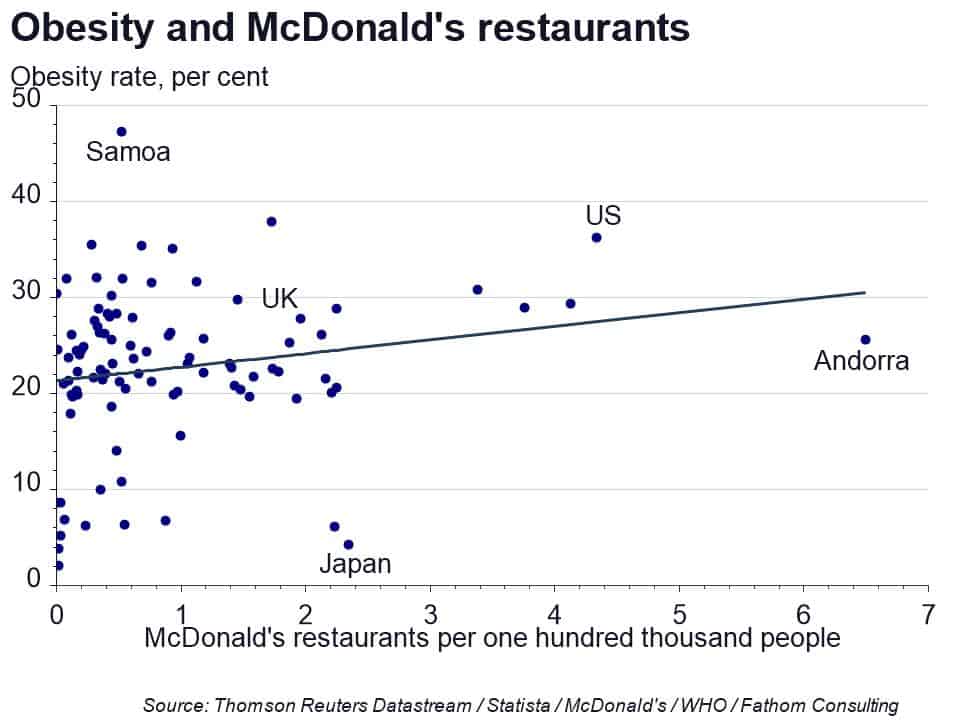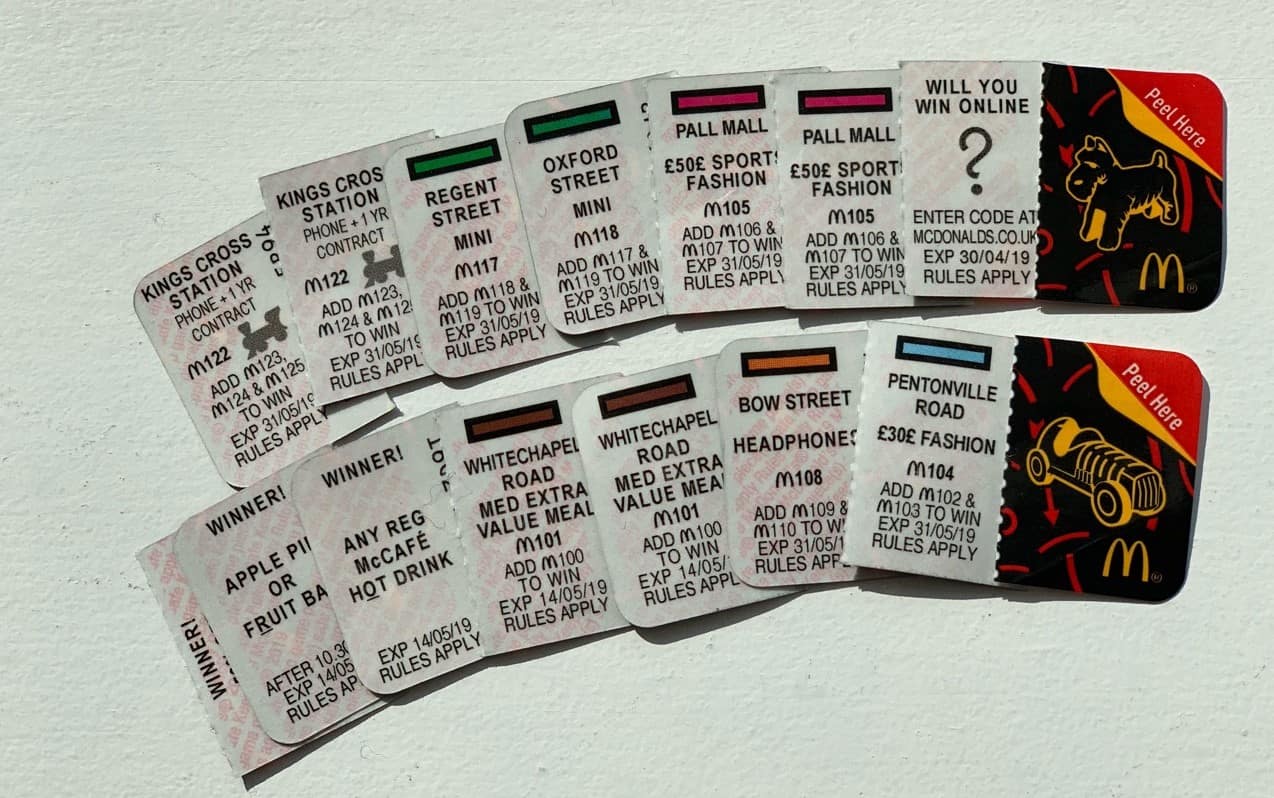A sideways look at economics
The annual phenomenon of the McDonald’s Monopoly promotion is once again in full swing, and has fast-food enthusiasts up and down the country excited. For a few weeks each year, customers get coupons with their food purchases which give them a chance to win free menu items, or they can collect game tokens, based on the Monopoly board game, for the chance to win large cash prizes. Ever since the promotion started in 1987 in the US, it has spread around the globe and is now a much-anticipated event in many countries — including the UK.
However, with the problem of the global obesity epidemic becoming ever more apparent, the spread of US-led, Western junk food culture around the world is coming under increasing scrutiny. This so-called ‘nutrition transition’ has been linked to the availability of cheaper imports of high-sugar foods from developed countries and a growing consumer appetite for Western culture, including fast food, in emerging markets. In the UK, the McDonald’s Monopoly game has come under fire from the Labour Party Deputy Leader Tom Watson for encouraging unhealthy habits and handing out sugary foods as prizes.
The adverse health effects of overindulgence in McDonald’s and other fast food has been well documented and publicised, for instance in the documentary film Super Size Me. Indeed, countries with more McDonald’s outlets per person tend to have a higher rate of obesity as shown in the chart below.

The causal effect of this relationship is questionable — the demand for McDonald’s by consumers with inherently unhealthier preferences is likely to be met with additional supply. Rather than causing obesity by encouraging people to eat unhealthy food by making it more widely available, McDonald’s might simply be expanding into markets where people already have unhealthy diets, irrespective of whether McDonald’s is available. However, it does suggest that greater availability of fast food is associated with unhealthier lifestyles. Somewhat surprisingly, Andorra tops the list of countries with the highest number of McDonald’s restaurants per capita, with an impressive 6.5 restaurants per 100k people. Once the country’s 8 million annual tourists (relative to its resident population of around 77,000) are accounted for, though, that figure drops substantially, leaving the US with both the most McDonald’s outlets and the highest obesity rate among developed countries.
Despite the general, positive relationship between McDonald’s outlets and obesity rates, some notable outliers exist. The Japanese, for example, have managed to preserve their healthier, local diet — rich in unprocessed, nutrient dense rice, fish and soya — despite having the second highest number of McDonald’s restaurants after the US. On the other hand, of the ten most obese nations in the world according to WHO data, all of which are Pacific island states, only Samoa has a McDonald’s. Perhaps the above-average BMI readings of these Pacific island nations merely reflect their global competitive advantage in producing internationally renowned rugby players, although the increasing struggle with obesity-linked illnesses in these countries suggests otherwise.
McDonald’s and other Western eating habits can’t be solely blamed for the rising levels of obesity in emerging economies. Other measures of global integration in food supply chains, such as trade openness or US outward foreign direct investment in the food industry are less statistically significant at explaining obesity levels across the world. But the ease and cheap cost of accessing fast food nevertheless plays a role in the ‘globesity’ epidemic. Perhaps, then, politicians such as Tom Watson are right to go after the aggressive marketing strategies of fast food companies, since the ensuing public health implications could be argued to be a negative externality of these food items, and thus justify a government intervention. After all, as we raised in another blog post, the UK is among the most obese countries in Europe, even though there are fewer McDonald’s per capita here than in Sweden, Austria or France (despite the country’s legacy of exquisite haute cuisine).
Despite the urge to try and win as many free McFlurries as possible in this year’s McDonald’s Monopoly, it would certainly be a healthier, and economically more rational decision to treat junk food as an occasional treat, rather than allowing fast food and the ‘golden arches’ to epitomise Western culture which is spread across the world. Should you nevertheless want to opt for the easy dinner option tonight and try your luck at collecting the prime Mayfair Monopoly location, then the economist’s order of choice for the most efficient menu item is the ‘Wrap of the Day’ in a medium meal, with a side of salad and sugar-free drink. This offers the lowest cost per Monopoly token for a complete meal (9 tokens for £3.59 in London, or 40p per token) — only a medium, sugar-free drink on its own (3 tokens for 99p, or 33p per token) offers better ‘per-token’ value, but is unlikely to actually fulfil the primary purpose of going to McDonald’s. And, when choosing the grilled chicken option, that menu choice is also among the healthiest options available. Perhaps thinking more like an economist is one puzzle piece in the complex solution to living a healthier lifestyle.
Confession time: the author has been partaking in the Monopoly game craze, despite the known ill health effects (strictly in the interest of primary research, of course!). Admittedly, he has not always followed his own token-and-value maximising menu choice either — sometimes a Big Tasty or milkshake is just a bit too tempting.
